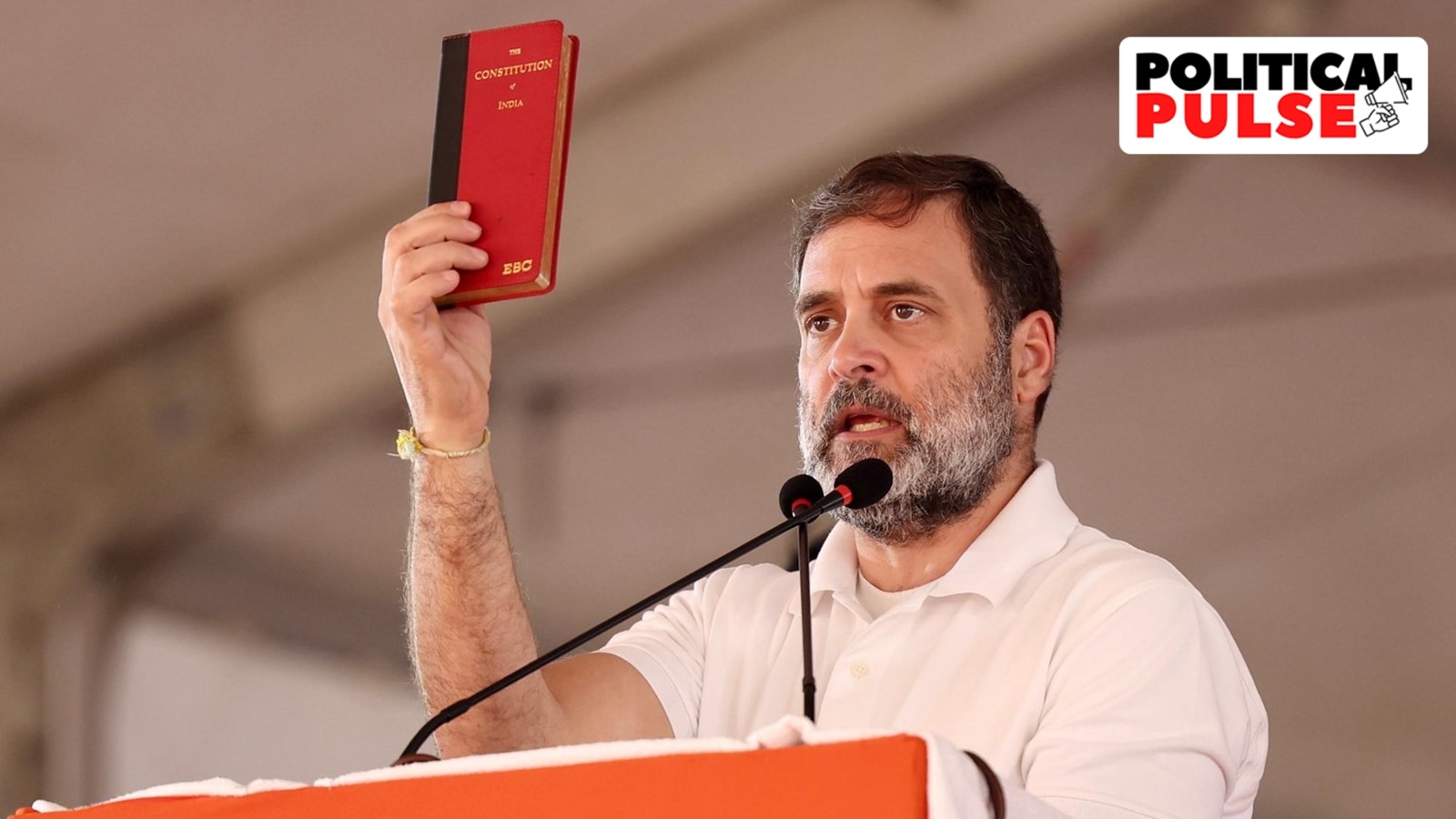 |
|
Rahul Gandhi's recent statement acknowledging the Congress party's failure to adequately address the needs of Dalits and Other Backward Classes (OBCs) since the 1990s has sparked significant debate within Indian political circles. His frank admission, delivered during a conference with Dalit influencers and intellectuals, represents a notable departure from the party's usual rhetoric and underscores the challenges the Congress faces in regaining the support of these crucial voter demographics. Gandhi explicitly stated that the Congress did not fulfill its responsibilities towards these communities in the past 10-15 years, a period marked by several changes in the party's leadership and a shift in the national political landscape. This admission, while potentially damaging to his image, is framed by Gandhi as a necessary step towards acknowledging the party's shortcomings and initiating a process of internal reform. The statement's implications reach far beyond a simple admission of past failures; it speaks to the deeper systemic issues within the Congress party and the broader dynamics of caste politics in India.
Gandhi's comparison of the current situation with the era of Indira Gandhi highlights a significant historical context. During Indira Gandhi's tenure, the Congress enjoyed considerable support among Dalits and OBCs, a legacy built on her perceived commitment to their welfare and empowerment. Gandhi's assertion that this trust eroded post-1990s points towards a critical juncture in Indian politics. The implementation of the Mandal Commission recommendations in 1990 under V.P. Singh’s Janata Dal government, while intended to address social inequalities, significantly reshaped the political landscape, leading to the emergence of new OBC-based political parties and the fragmentation of the Congress's traditionally strong OBC vote bank, particularly in the Hindi heartland. This historical context provides an essential backdrop for understanding Gandhi's current pronouncements and the strategic significance of his outreach efforts.
Gandhi’s call for an “internal revolution” within the Congress party signifies a recognition of the need for deep-seated change. This suggests that superficial adjustments are insufficient; instead, a fundamental shift in the party's approach to Dalit and OBC issues is required. This call for internal transformation goes beyond simple rhetoric; it necessitates a substantial restructuring of the party’s organizational structure, decision-making processes, and candidate selection criteria to ensure meaningful representation and inclusion of these communities at all levels. The success of such a revolution hinges on the Congress's ability to genuinely address the concerns and aspirations of these communities, not just through symbolic gestures but through tangible policy initiatives and meaningful empowerment.
The context of the statement is crucial for interpreting its implications. Gandhi's remarks are made against a backdrop of three consecutive Lok Sabha election losses for the Congress and the party's shrinking influence across several states. His current outreach to Dalits and OBCs, coupled with his criticisms of the BJP's policies and his advocacy for a caste census, reflects a strategic attempt to rebuild the party's base. This strategy also involves contrasting the Congress’s approach with that of other parties, particularly the BJP and the Aam Aadmi Party (AAP). His characterization of Arvind Kejriwal as anti-reservation and anti-Dalit underscores the Congress’s attempts to capture the political space previously dominated by these parties, creating a clear distinction in its approach towards Dalit and OBC communities.
The significance of Gandhi's mention of Indira Gandhi and the 1990s is multifaceted. It not only establishes a historical benchmark against which the Congress's performance is measured, but it also highlights a pivotal point in the evolution of caste politics in India. The implementation of the Mandal Commission recommendations drastically altered the political landscape, leading to the rise of OBC leaders and parties. The BJP, traditionally perceived as a party representing upper-caste interests, has successfully made inroads into Dalit, OBC, and tribal communities since 2014, further challenging the Congress's dominance. Gandhi’s acknowledgement of this shift signals a critical awareness of the changing dynamics of caste politics and the need for the Congress to adapt and re-establish its connection with these communities. His emphasis on the need for ‘power’ rather than simply ‘representation’ suggests a move towards a more substantial engagement with these communities, focusing on economic empowerment and meaningful participation in decision-making processes.
The overall impact of Gandhi’s statement is still unfolding. While his frank admission may alienate some within the Congress, it could also resonate positively among Dalits and OBCs, creating a sense of transparency and willingness to engage with their concerns. The success of this strategy will depend not only on the Congress's ability to implement genuine reforms but also on its capacity to effectively communicate these changes to the electorate. Whether this constitutes a turning point for the Congress or simply a strategic manoeuvre remains to be seen, but it undoubtedly marks a significant moment in the ongoing evolution of Indian caste politics and the future trajectory of the Congress party.
Source: ‘Can’t lie… Congress lost Dalit, OBC confidence after 90s’, says Rahul Gandhi
